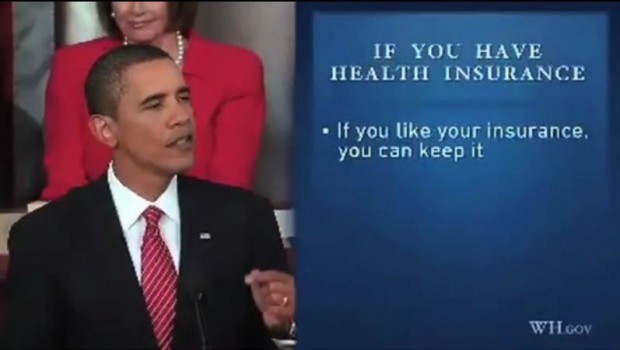"If you like your insurance plan, you can keep it"
Matthew Martin
11/07/2013 12:00:00 PM
Tweetable
 |
| Truer words have often been spoken. |
This is somewhat of a weird statement for an economist to analyze, because it is not actually a not a so-called "positive" statement. Positive claims are ones that are in theory directly measurable. "No existing insurance plans will be dropped" is a positive statement, since we can simply go out and measure how many people stay on their existing insurance plans, and if that number is less than the number of existing plans, we know the statement is false. But what the president said was different--he was not claiming that no one would change their insurance plans, but that all such changes would be voluntary. This is much harder to measure.
I will admit that it was a stupid thing for Obama to promise. Any healthcare researcher who has been following this has known from the start that many of the insurance plans currently offered would be discontinued after the ACA went into effect. Yet, the theorist in me can't bring myself to say that Obama was totally incorrect, for three reasons.
The first reason is that the ACA does not regulate employer based plans. Two existing laws passed decades ago--the ADA and HIPPA--regulate employer based insurance plans, and not only are most employer plans exempt from the coverage requirements of the ACA, those coverage requirements were specifically designed so that existing employer based plans would qualify anyway. Adding in CHIP, Medicaid, and Medicare, this implies more than 80 percent of the public have plans that will remain unaffected by the ACA.
The second reason is legal rather than economic. As a strict matter of fact, the ACA does not render any existing insurance plans illegal. Not all pre-ACA individual plans (about 5 percent of the population) satisfy the bronze-level coverage requirement of the ACA, but it remains perfectly legal to buy and sell them, either by paying the ACA penalty and having a "non-compliant" plan instead, or by buying a new plan, avoiding the penalty, while also keeping the existing plan as supplemental coverage. Supplemental, risk-rated coverage is a real thing that has been discussed in the academic research since long before the ACA.
The third reason is economic. There is a saying in economics that anything is for sale if you offer the right price. The narrative around Obama's promise has been that people with pre-ACA plans are getting "cancellation notices" from their insurers, and that somehow proves that they are involuntarily loosing their existing plans. But theory says something different: these cancellations are, in fact, totally voluntary--if you offer the right price, your insurer definitely will let you keep your plan. The real issue is not that people are being kicked off their plans, but that insurers are betting people won't want to stay on those plans.
This gets at a basic fact about economic theory. From the economist's perspective, all market interactions are totally voluntary. In this respect, the theorist in me will not allow me to say that people are being involuntarily kicked off their existing insurance plans.
But then, I realize that to the non-economist, this looks a lot like not being able to keep your plan.